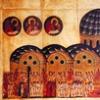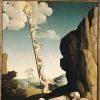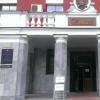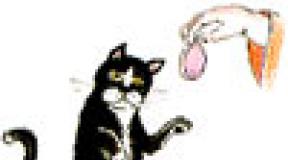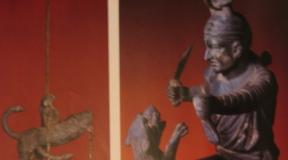Here we need a speech, everything went to HIV. Worse than AIDS: people who deny HIV infection. Why are speed dissidents dangerous?
An excerpt from the incredible and true story of the group (18+)
We are publishing an excerpt from the book, in which the writer and journalist, friend of Sergei Shnurov, Maxim Semelak tells the story of the legendary musical group.
“Leningrad” works with such vibrations that, in principle, are designed for a certain omnivorousness - its abuse is initially area-based, it is a sweepstakes group. Having turned “Leningrad” into a kind of Russian search system, Shnurov accepted the need to respond to requests, which is why at concerts he so insists on all this orchestrated applause, sing-alongs, bows and lights in the hall (lately it has gotten to the point where he forces the audience first sit down and then jump up sharply while singing the old song “Supergood”). The success of “Leningrad” is, strictly speaking, not praise or appreciation for it, it is rather an innate property, without it these songs simply lose their meaning, they were written for exactly this purpose. That’s why they usually listen to them for a long time and a lot, to the point of nausea. In the Russian concert space, “Leningrad” has gained a functional advantage, intertwining the features of a traveling circus, stadium rock and pleasure ship disco. The energy of “Leningrad” is based on completely fossil fuel - the group’s concerts are extremely archaic, everything is driven by a drive of purely animal origin, but of an ambiguous nature, corresponding to Shrunov’s motto “it’s good that everything is bad.”
His travels took him from the Netherlands to Paris, from Italy to Morocco. We are humbled by her annoying love - Jeanne Polge, willing, we are carried away by her friendship, strong and fragile at the same time, which holds, who holds, and then who inevitably breaks, like the one that unites her with Ren Char.
De Stall writes his letters as he paints: with vigor and color. For although love occupies an important place, most of this painful existence was painting exclusively and unreservedly. Air is nothing, one measures in passing what he owes to his masters: Velazquez, Delacroix, Ucello, Rembrandt, Vermeer, of course, and many others. But if he paints, he must live better and avoid the passion of passion. Why draw if not “to help me live, to free myself from all impressions, all sensations, all worries”?
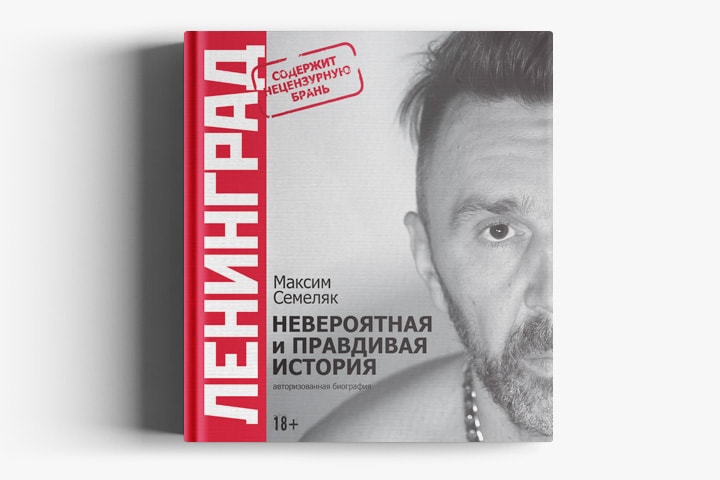
Leningrad LLC rests on three principles - wit, stupefaction, social science. “Leningrad” is funny, wild and precise - the combination of these qualities makes it practically invulnerable to criticism: it is difficult to approach it with serious standards, and at the same time, it is impossible to make fun of it, because the group itself will do it for you. In the songs of "Leningrad" you can hear a lot of things, from rude to stupid, but there is no dirt and complacency in it. “Leningrad” is, again, the Venedikterofey sphinx, its riddles, as was said, with pig overtones, but on the whole it works rather according to Herzen’s formula - “debauchery in Russia is not deep at all, it is more wild and greasy, noisy and , rude, disheveled and shameless than deep.” Everything is so, and the meaning of “Leningrad” is in the mood they once tamed and still retain, which Shnurov himself calls eschatological delight. As Mamardashvili, whom Shnurov valued, said, “What worries me most is the lack of tragic joy.”
This world that he expresses when he sees is a world saturated with colors, with light, often with the sun; a complete world that grabs you by the throat with big blows. Beneath this purity, all the classics supplant the expression of a desperate creature. Nicholas de Staël, aged forty-one, committed suicide by throwing himself into the void. From this temptation, where he ultimately humbled himself, what remains is a sense of beauty - a celebration of spaces, things, being - that makes you giddy and makes you want to live. Don't think that the bitter ones who bite your life with such fire in your heart go away without leaving an impression.
“Leningrad” has privatized the very feeling of the holiday, this is its trademark, the shares of which are rising - the fewer reasons for the holiday, the more relevant the Leningrad institution. This paganalia is consistent with Russian literary traditions - it is a celebration of a generally small person (which is most clearly captured in the video “Drinking in St. Petersburg”). Shnurov was accused of mocking people, although he transformed the inertia of the usual local self-criticism into the energy of jubilation; and his notorious Louboutins also, funny as it may seem, came out of Gogol’s overcoat. In Mamleev's old story this is called - playing around in squalor.
Nicholas de Stall, live to paint. Known for his paintings in the Park of the Princes, the artist burned his life in the heat of his passion for painting. His correspondence is clear, “in the very rhythm of life,” absolute existence. He was tall, over two meters tall, and spoke in a low voice to shake the walls. In his life, as in his work as an artist, Nicolas de Stael dislocated himself. He did not want and could not lock him into a school, a genre or a dogma. But on this dazzling journey he painted more than a thousand canvases, constantly working in Paris, in the south of France, convinced from his youth to do it, tense by this belief and an intimate injunction to live completely for it.
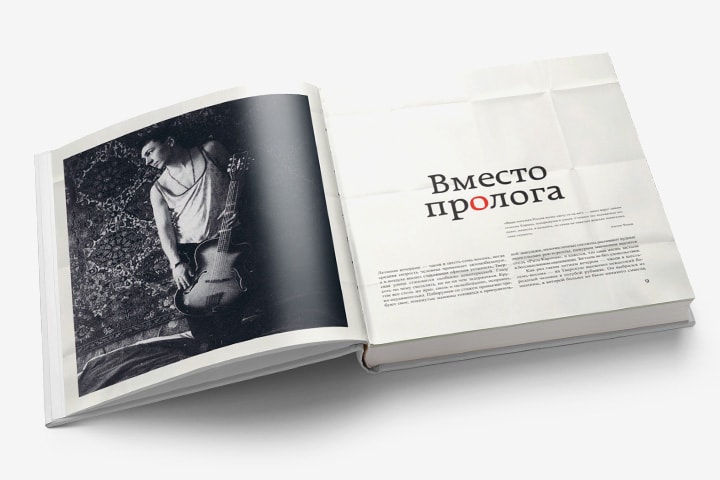
In Moscow, on a stretch near the Fili station, graffiti once appeared - a huge word FUCK, in which clouds, sky, forest, people were written in detail. This is Leningrad. Shnurov contained within himself this enveloping energy of barbarism, but in the same way as Lyn Khejinyan wrote about barbarism: “The figure of the barbarian poet I propose in no way implies romantic complacency. I do not intend to resuscitate or re-appeal the image of the pampered, self-indulgent, anti-intellectual pompous persona in the spirit of romantic clichés. In fact, the barbarian is a completely “ordinary” person creating a “new picture”. It is not a marginal language, but an agent (and conductor) of tangibility, as well as a medium of self-multiplying connections. It is the logic of these new connections that gives poetry its endless flexibility and ability to transform.” Shnurov turned into an agent of tangibility, and it was the logic of new connections that led to the fact that 2016 became the year of “Leningrad” - many groups here broke up and gathered again, but no one managed to return and rise to a higher level. Of course, there is a great temptation to assume that Shnurov is, as it were, Putin - well, since the Medvedev era coincided with the “Ruble”, and when Putin returned, “Leningrad” returned (although Shnurov met Medvedev, but not Putin). Although, after Trump’s incident, they began to see in “Leningrad” a global biopolitical tendency towards simplification and the aforementioned barbarism, and some person on Instagram compared him to the young Hitler (really a little similar). Shnurov himself explained all the speculation by saying that “Leningrad” had become an epic - with wide space for staging: “You cannot be successful, because Putin is successful, and these 86 percent do not give them rest - if you are successful, then you are playing on Putin’s aside, it's automatic. Although they themselves understand perfectly well that Shuvalov and I are not of the same breed, that we grew up here and exist not thanks to, but in spite of, and claims against us arise equally from Orthodox activists and systemic liberals. But discussing us is the same as presenting the Australian band AC/DC with something about the Aborigines.”
The 50s will be the years of recognition, of glory itself. He sells guns in New York. His refusal to choose between the figurative and the abstract pleases US buyers while he was mostly in Europe. These years will also have an impossible love for Jeanne, married woman. The artist committed suicide in Antibes by throwing himself at the window of his building on the night of March 16-17.
Being a great connoisseur of the work of Nicolas de Stael, he was associated with the first editions of the artist's letters, from the Catalog of Intelligent Painting, in Richness, Precision, they avoid intrusion and this unpleasant sensation, seeing life, the eyes of everyone. They accompany restraint; come into resonance with the sweeping ball, which is all life.
Once, leaving the Moscow station, I noticed three mugs in a kiosk - Putin, Vysotsky, Shnurov. It seemed that other people were no longer depicted on the mugs. Shnurov, however, rather followed Utesov’s line - everything is fine, a beautiful marquise. There is such a term - “conservation status: causing least concern”. This is what they say about wolves, for example. On the one hand, this, of course, is about “Leningrad” - I don’t really believe that it will be possible to cope with it in a censorship-repressive manner; today it is really a big and seasoned beast. According to Yandex polls, the main memes of 2016 were “Louboutins” and “drink in St. Petersburg.” One night we sat at the Probka restaurant in the Gazprom building, where, as you know, the lights are turned off at one in the morning. We sat for two hours by candlelight - Andromedych sat down at the phono, Florida sang about boobs, then Shnurov got tired of it, at three o'clock in the morning he called the general director of Gazprom A. Dyukov, and the lights were turned on. It seems that it is difficult for Leningrad to get into the distribution, since it itself is traditionally on the distribution. However, like any newsman and individual worker who came from nowhere, he walks a strange fine line - both the authorities and the people seem to love him, but within the framework of the existing logic of the absurd - when there is a law on swearing and posters of “Leningrad “- no one ever guaranteed him anything, and he never had and doesn’t have any formal patrons. When the law was adopted, just three days later “Leningrad” performed at Urgant with a fresh song about the fiasco and an unnamed intercourse, and that same week an extremely closed corporate event took place at the Mikhailovsky Theater for very powerful mandarins, where Shnurov at the end of the curtain wished the audience: “Love and good luck, we’ll steal the rest!”
What is it like to read this correspondence, a huge 700-page journey? The privilege of exclusive communication. Emotion also learns from what is an artistic search. Because of the misfortune that the reading of letters, these words intended for personal reading, always gives birth, everyone is here to observe, step by step, the birth of a vocation and then of an artist. These letters are, finally, luxurious lives, talent, style very often or a simple ticket torn from the everyday race, thus these letters allow one to perceive the progress of a person, the initial plan to the final drama.
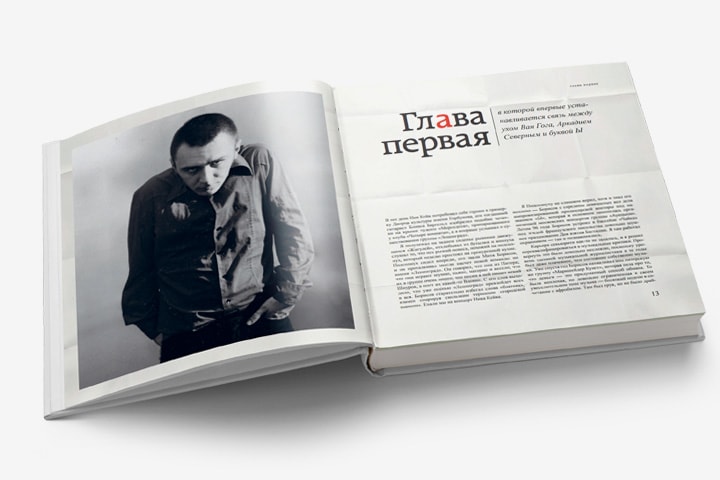
On the other hand, its snowball was gradually gaining mass - the public organization “Orthodox Union” called on people not to swear at concerts in Rostov-on-Don and Krasnodar, Novosibirsk activists wrote a denunciation to prosecutor Yuri Chaika, at the end of November someone called the police three times because Shnurov was fined several times for swearing on stage. In the fall of 2016, he was overwhelmed by filming on Channel One - he took up hosting a talk show, citing reasons of creative safety - no one canceled parliamentary requests, and it would be more difficult for someone from Channel One to close a concert. In addition, “Leningrad” undertook to shoot its most pompous video for the song “Kolshchik” for 25 million rubles, with director Ilya Nightshuller, and also appeared in the fourth season of “Fizruk” - the most notable serial story of our time. Stas Rostotsky described it this way: “The Leningrad group arrived on the set with a truncated lineup - and in absolutely blissful ignorance of what they actually fit into: at that moment, the members of the group were most occupied with the new Metallica album and a couple of fresh compositions by Alla Pugacheva, analyzed by Shnur quickly, biasedly and philologically impeccably (he was especially upset by the rhymes). As in “Election Day,” “Leningrad” had to perform from the screen not its own song, but another stylization of itself, this time with the striking refrain “We need a match, everything has gone to HIV.” And suddenly they looked at each other, took the instruments and began to play House of Rising Sun. Their "Home" rising sun“made an absolutely stunning and magical impression - even despite the buffoonish “Give me some money!” barked by the Cord on the final chords.”
Nicholas de Stael was the son of Vladimir de Stael of Holstein, vice-governor of the fortress of St. Peter and Paul in St. Petersburg, and Lyubov Berednikov. The father is ugly, strict and pious; the mother is much younger, an artist of temperament and very lucky. Did Nicholas de Staell have Madame de Staell? The Stael baron family is Swedish.
Nicholas de Stail grew up in the luxurious decor of the Fortress of St. Peter and Paul when the family revolution took place in Poland. The father does not support the exile and dies in Lyubov, he died a year after cancer. With his two sisters, a veil collected by a family of industrialists of Russian origin in Brussels, Frisero.
Before the next Leningrad concerts at the Barvikha Luxury Village, Shnurov and I went to wander around the shops, which are uninhabited in these parts, like some kind of cabinet of curiosities of consumerism. The local Prada boutique is reminiscent of the Texas installation Prada Marfa, which actually depicts a retail store in the middle of the desert. That evening it got colder, Shnurov wandered around the store, like that same dashing man in the icy desert, the saleswomen silently followed him. In the end, he chose an astrakhan fur coat for himself: “The real end of the empire!” They asked one and a half million for the fur coat. The test purchase did not happen right away - there were only two fur coats in the world, no one at the head sales office believed that anyone in a sane Russian mind could purchase it, so the saleswomen almost called Miuccia herself for approval of the transaction. While Shnurov was looking at his reflection, talking about Baskov’s recent concert and praising the group “Mushrooms,” a composition by Asmus Titchens from 1983 suddenly started playing in the store. Outside the window, Sevich and Parygin paraded like two frozen angels - they recently formed the group “MAX” with a song about Fedul. And this vacuum store, and Shnurov in this fur coat, and Asmus Titchens, and this imperially final price - everything was filled with such crystal absurdity and at the same time iron logic that the entire semantics of possible worlds shone around and around. We were given an incentive bottle of champagne and a huge bag of clothes, it seemed that we had bought not a fur coat, but an entire country. We headed to the hotel to drop off some purchases, and besides, Shnurov needed to take medicine for his ligaments. I drank champagne, and Shnurov drank his potion, and we hurried to the concert. Already in the elevator he said: “ Lately I feel a strange feeling - it’s like everyone has been defeated, but what the fuck?”
The entire beginning of Nicholas de Stael's correspondence is largely intended for his adoptive parents. Strong ties bind young man with his guardians. The break that will occur between them after his choice to become an artist will only be more difficult. He entered the Royal Academy fine arts in Brussels and went to Spain and Morocco.
These wonderful stories about the beauty of the landscapes and the people we meet - not only the young people of 20 people, but also the artist. The loneliness of one who must believe alone in his calling, which must be built in discipline, the meaning of this undertaking that begins, and also struggle with the lack of money and the inability to produce, as the pressure of the magical Brouwer would like, all this is already swirling between the ecstasy of the lights , processions, Valencia and Mogador. For his parents who doubt him, his vocation, his talent, he tirelessly writes that he works: It took me six months in Africa to know exactly what kind of painting it was.
“Miss Universe” will take an AIDS test in Moscow
Natalya Glebova, the most beautiful woman planet, flew to the capital from Canada yesterday. The purpose of the visit is to take a blood test for HIV infection and thereby encourage every Russian to do the same. After all, becoming “Miss Universe” means not only to show off your beauty, but also to take upon yourself important mission. Since 1998, every first beauty on the planet, along with the crown, also receives the title of UN Goodwill Ambassador on HIV/AIDS.
It was in Morocco that he met his first wife, Jeannine, an artist slightly older than him. She leaves her husband to follow Nicolas de Stael. In Morocco, Algeria, a young man describes a life marred by colonization. The couple, frightened by financial problems, arrive in France in May.
It was in Nice, in the free zone, in next year that Nicolas de Staël met the pioneers of abstraction, Sonia Delaney, Jean Arp and Alberto Manelli. Nicolas de Stael then abandons figuration for abstraction and freedom of line, quickly developing correct language. But hunger constantly haunts them. These years are terribly difficult. Nicolas de Staël often sees Braque, which makes him feel better. The young man embodies the youngest “painting”.
The first thing Natalya did upon arrival was to meet people living with this terrible disease, to support them and just to chat. And then, as expected before an AIDS test, I went for a consultation, which, according to the law, everyone who decides to be tested must undergo. At this consultation, it is explained that the result of the analysis, against all expectations, may turn out to be positive, and the person must take this step consciously or refuse it.
Closer to him is the way for Staell, Germaine tells Wyatt, to distinguish himself from his generation and escape from the chapel. Jeanne is gradually losing his health. She will die abruptly during the abortion. Turning to dark colors, Nicholas de Stoll brightens up his end-of-year palette. He directly asks that his canvases are not tied to the sides of the “abstract”.
They proceed to the common book "Poem", accompanied by fourteen engraved scaffolds. After London, where some of the more figurative paintings destabilize criticism, Nicholas de Staël shows in New York under contract, Nicolas de Staël will have to produce and produce again. The artist, frightened by the climate of the art world in the United States, runs away and isolates himself. Passion with Zhanna, married like him, will eventually shake her up.
Last year, 23-year-old Natalya Glebova represented Canada at the Miss Universe pageant. She was born in Russia, in Tuapse, but her parents emigrated when the future star was 12 years old. Natasha claims that she remembers the Russian language perfectly, but she still preferred to give an exclusive interview to MK in English.
I am glad that I am continuing the work started by my predecessors. I know what a terrible misfortune this is, and not from books, but from real life. After all, dealing with the problem of AIDS is my professional responsibility.
Closing this correspondence, everything vibrating with faith and life, with dramas, we see the colors, the sky, the roofs drawn by this hand, which we saw, almost moving, trembling, on our side. Life in words and in painting. This indispensable work for the artist's affiniadors provides the opportunity to read for the first time the entire body of his letters discovered to date. They provide as much fascinating evidence of the life of an artist of such significance as, for example, the “Letters of Van Gogh.” The analysis is all the more accurate today because this edition includes almost 200 unedited letters.
A beauty contest among HIV-infected people was recently held in Russia. The winner, Svetlana Izambayeva, a hairdresser from Cheboksary, suffered a lot after it: they literally pointed fingers at her, clients refused her services...
Of course, it is very difficult to openly admit your diagnosis. This requires courage. It's sad that many, without really knowing anything about AIDS, draw quick and erroneous conclusions. Until everyone clearly understands for themselves what HIV is, why it is dangerous and how it is transmitted, such situations will be repeated. That's why I came, to set an example for others. I would love to meet this courageous girl, hug her and show others that there is nothing wrong with her.
Germain Wyatté's notes allow us to understand the context in which the letters were written, and Thomas Augais's text on the letterbox rightly emphasizes how writing occupied a large place in the painter's life and what his contributions to poetry were. There is a reflex to be wary of intimacy, a reluctance to sometimes look in the margins for writers or artists, to refuse to wallow, to fight off one’s secrets, a desperate desire to confine oneself to the work, to its purity, to the boundaries that seem to be corrected.
Because man systematically uses what he invents, from the primitive hoe to the atomic bomb, he reads everything he can read, everything he can know, everything his eyes can see. ask. The temptation of exhaustion and exhaustion is always lurking. That's because we're passionate about the details. They follow a peculiar, moving rhythm, often occupying other durations, the order of the path, side by side, liberating what we are passionate about.
- You will publicly take a blood test for HIV. What if, God forbid, it turns out to be positive? Are you ready to confess?
Certainly! I will not hide. If the test really comes out positive, I am simply obliged, as a goodwill ambassador for HIV-AIDS, to admit it.
- Do you have infected friends?
Among those who mean a lot in my life, there are also those who, unfortunately, are sick.
Do you have infected friends?
And we sometimes fear that there is too much of this kind. And it is with the same energy that the letters of Nicholas de Stael are unfriendly. At the same time, it shows an attitude towards the world, evidence of what animates the depths of the body and mind, an extraordinary power of rupture. The artist becomes an artist by breaking down what unites him, he seems to diffract in order to concentrate, to be alone, only in painting. To read his letters, from the words of youth, or has already exposed a constant concern for himself to those who write, when he finally achieves success, he returns to enter the workshop of this gesture, the production of beauty.
-Are you ready to marry an HIV-positive man?
To be honest, not really.
- At the very beautiful girl Surely the most amazing boyfriend in the world?
But no. There is none. The Miss Universe job takes a lot of time. I haven’t had a free minute in a year, so I simply don’t have time to start a serious relationship with anyone.
Specific treatment for a specific virus
We convey matters of the heart and trade, the pangs of intimacy, the pain of fractures, the fragility of man, as well as the details of sale and exhibition - they, of course, order an intimate constellation of a man who literally exudes the purity of painting. He is fascinated by the doubts that cross him, the tone of his picture, his path, his final set, what he thinks about it, what he says about it. Painting, however, always tends to all aspects, that is, to the impossible complement of the present moment, past and future.
- What kind of men do you like?
Kind, with a sense of humor, open, educated, harmonious. It is best if they are tall, with dark hair and eyes.
- How do you feel about women who endlessly change their partners?
This is their choice. There is nothing wrong with this - as long as they engage in safe sex with their chosen ones. I think to myself that it's mine real love(when I meet her, of course) will be forever.
It is the division of this matter that illuminates the letters. The way of working is growing. And nothing prevents him from becoming a writer. There is, of course, a style to this correspondence that stems from the fierce energy, channeled with difficulty, that the words must envelop. The artist calms himself by projecting, sharing something about himself, the primitivism of his painting. De Staell, like Zola, is absolutely perfect, without affectation, without pose.
We are pinned in place by the astonishing depth as we remain stunned and melancholy before the endless play of colors and shapes that he has placed before our eyes. These works, more or less hidden, in any case, force us to caress something dazzling, they organize on the path of the “pillars” the time and space of works or lives that are out of the shadows, earning something from themselves.



